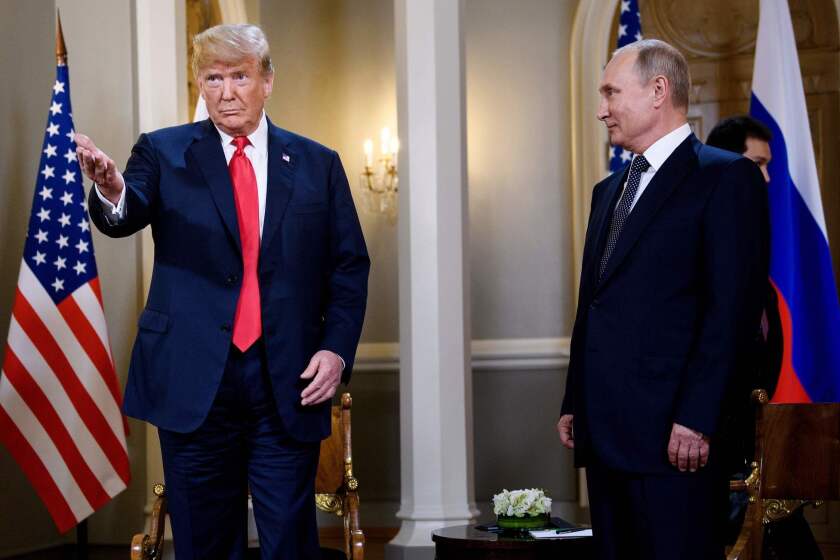Whom might Biden choose to run State Department, NSA, other foreign policy jobs?
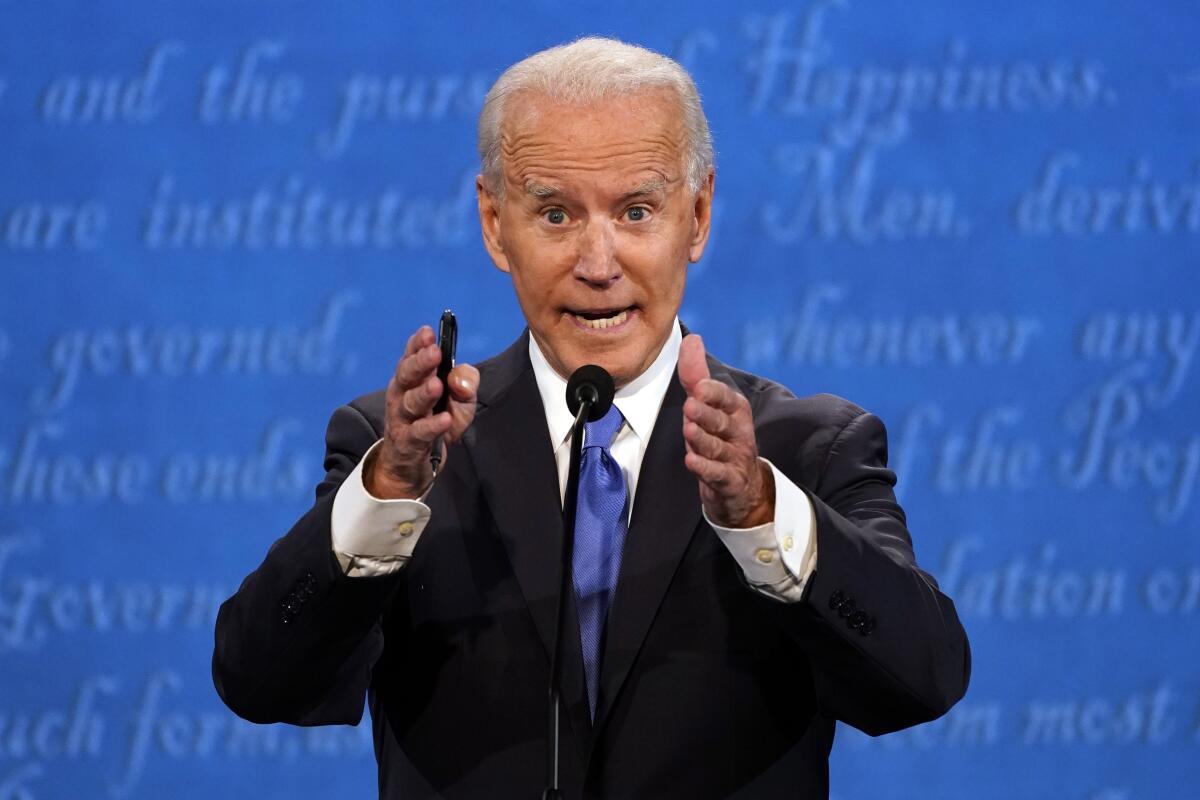
- Share via
WASHINGTON — If former Vice President Joe Biden wins election next month, an early task will be to rebuild a U.S. foreign policy team following the Trump administration’s sidelining of numerous veteran diplomats and retreat from global leadership on the world stage.
Here’s a look at some of the top contenders for a possible Biden administration:
National Security Advisor
One leading candidate is the person who has served as the campaign’s top foreign policy advisor, Antony Blinken. Blinken, 58, was a deputy national security advisor and deputy secretary of State in the Obama administration as well as national security advisor to Vice President Biden from 2009-13.
A veteran of earlier Biden presidential campaigns, Blinken has served as a regular surrogate for Biden this year, a frequent commentator on foreign policy and critic of Trump. “Joe Biden will benefit just by not being President Trump,” Blinken told The Times earlier this year. “That is the opening opportunity.”
Blinken, a descendant of Holocaust survivors, has leaned more toward intervention in world crises than some of his colleagues, but is also facile in readjusting his position to match that of the administration he serves. He appears to be fiercely loyal to Biden.
Secretary of State
While a national security advisor is arguably the aide closest to a president, the most important public face of foreign policy is secretary of State, America’s top diplomat and the chief among equals in the president’s cabinet.
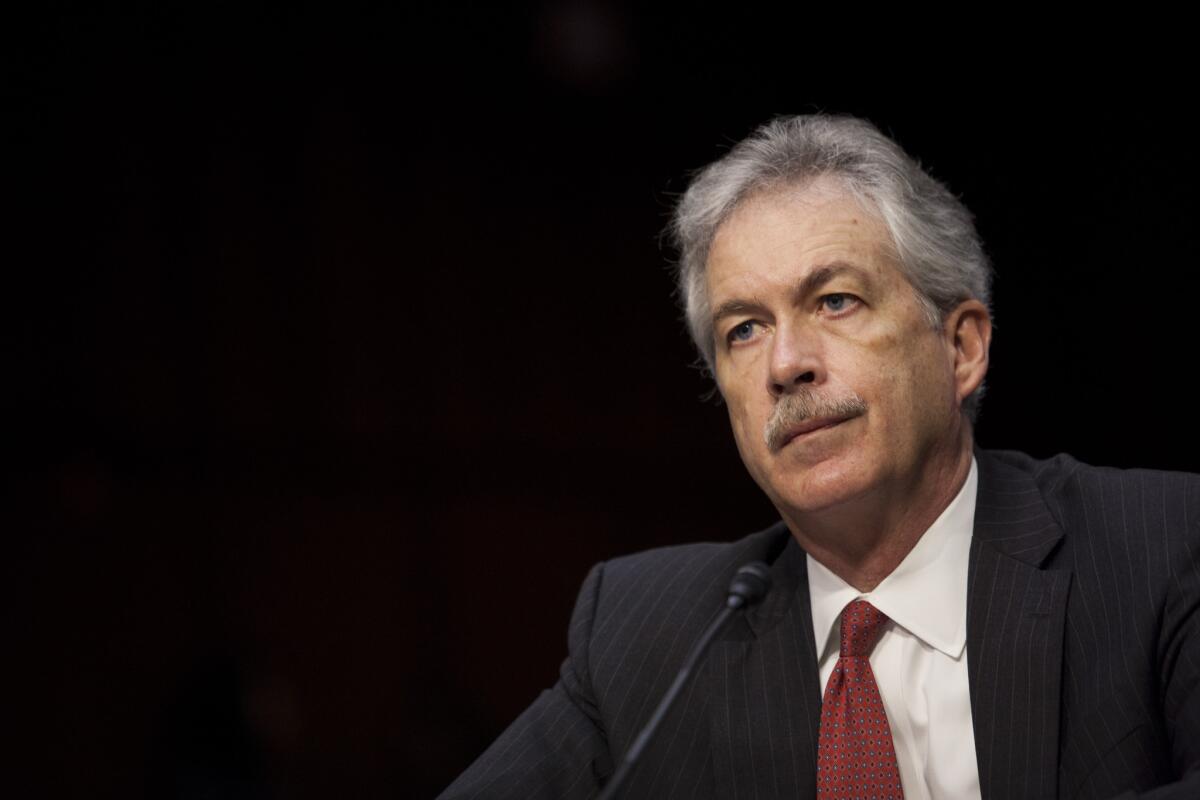
Many in Biden’s orbit have voiced support for William Burns, a retired career foreign service officer who is currently president of the Carnegie Endowment for International Peace, a leading think tank in Washington.
Burns, 64, served as deputy secretary of State and held ambassadorships to Russia and Jordan, among other posts, during Democratic and Republican administrations. He often handled back-channel peace negotiations in the Middle East and helped make possible the landmark Iran nuclear deal signed by President Obama and five other nations with Tehran.
Burns resisted overt criticism of the Trump administration in its early months, but more recently became a vocal skeptic. During the congressional impeachment of Trump late last year, Burns compared the president’s treatment of career diplomats willing to testify against him to the degradations of Joseph McCarthy.
Burns is seen as the consummate diplomat, able to negotiate his government’s position, but also firmly rooted in belief in institutions and the traditional role of the United States in global policy, including the multilateralism that the Trump administration has disparaged. As a career foreign service officer, the choice of Burns would send a reassuring signal to a State Department that has felt battered or ignored in the Trump years.
Several people familiar with Biden’s thinking suggested he might instead fill the post with a nod toward diversity and reflecting the broader Democratic constituency.
Susan Rice has served both as national security advisor and ambassador to the United Nations during the Obama administration, and held other diplomatic posts under President Clinton. She has been mentioned as a possible choice, in part because of her long, friendly relationship with Biden — which also put her in the race for the vice-presidential nomination, which ultimately went to Sen. Kamala Harris. She would be the second Black woman to serve in the post.
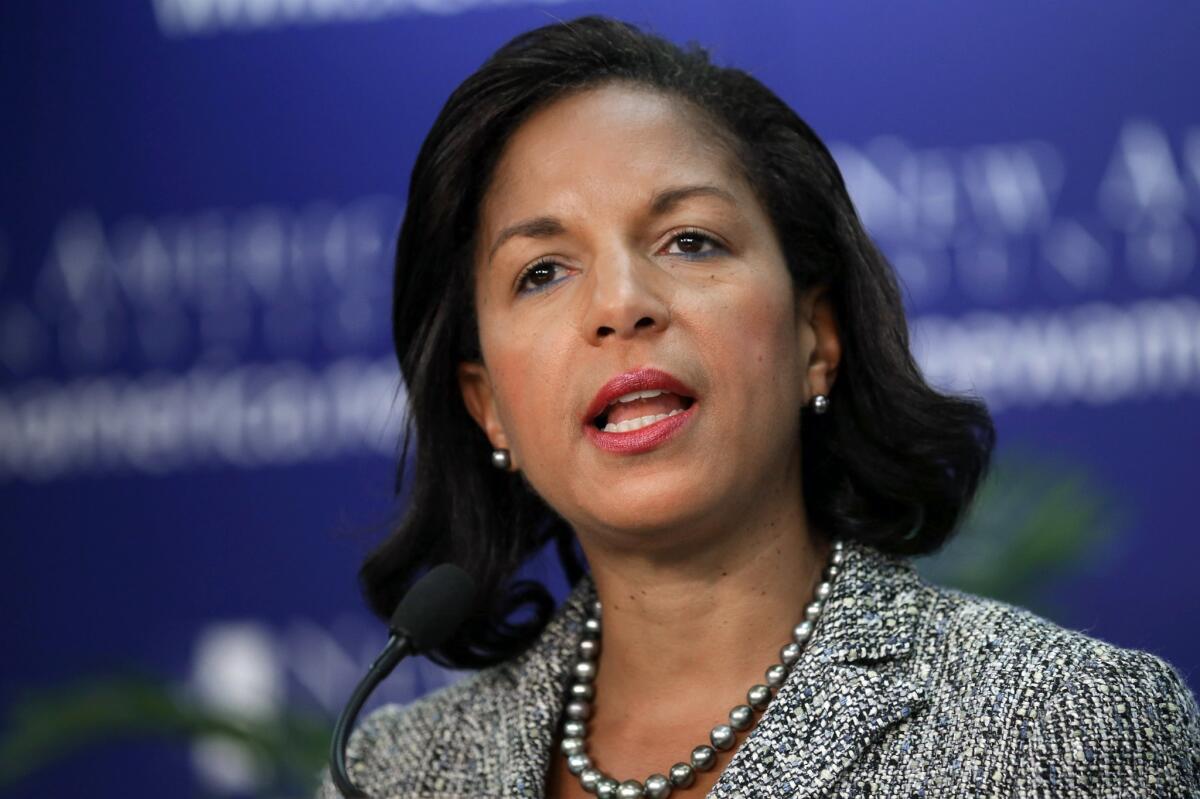
However, if Republicans continue to control the Senate after November, it might be difficult to secure confirmation for Rice, 55. She remains a favorite target of GOP conservatives who castigate her for her handling of the 2012 militant attack on the U.S. Consulate in Benghazi, Libya, that left four Americans dead, including the ambassador.
A former Rhodes scholar, Rice is respected for her fierce intellect, though seen in some circles as abrasive. She parted company with former ally Hillary Clinton to side with Obama in opposition to the Iraq War. But she also supports U.S. military invention at times to stop mass killings or genocide — a position adopted after the 1994 Rwandan genocide, when the the Clinton administration was criticized for failing to act.
Secretary of Defense
While not an exclusively foreign policy portfolio, the Pentagon also has a large partnership role in global diplomacy. For a Biden administration, all eyes are on Michele Flournoy, essentially the No. 2 in the Department of Defense through most of the Obama administration, serving as deputy Defense secretary for policy and senior advisor to Defense secretaries Robert Gates and Leon Panetta.
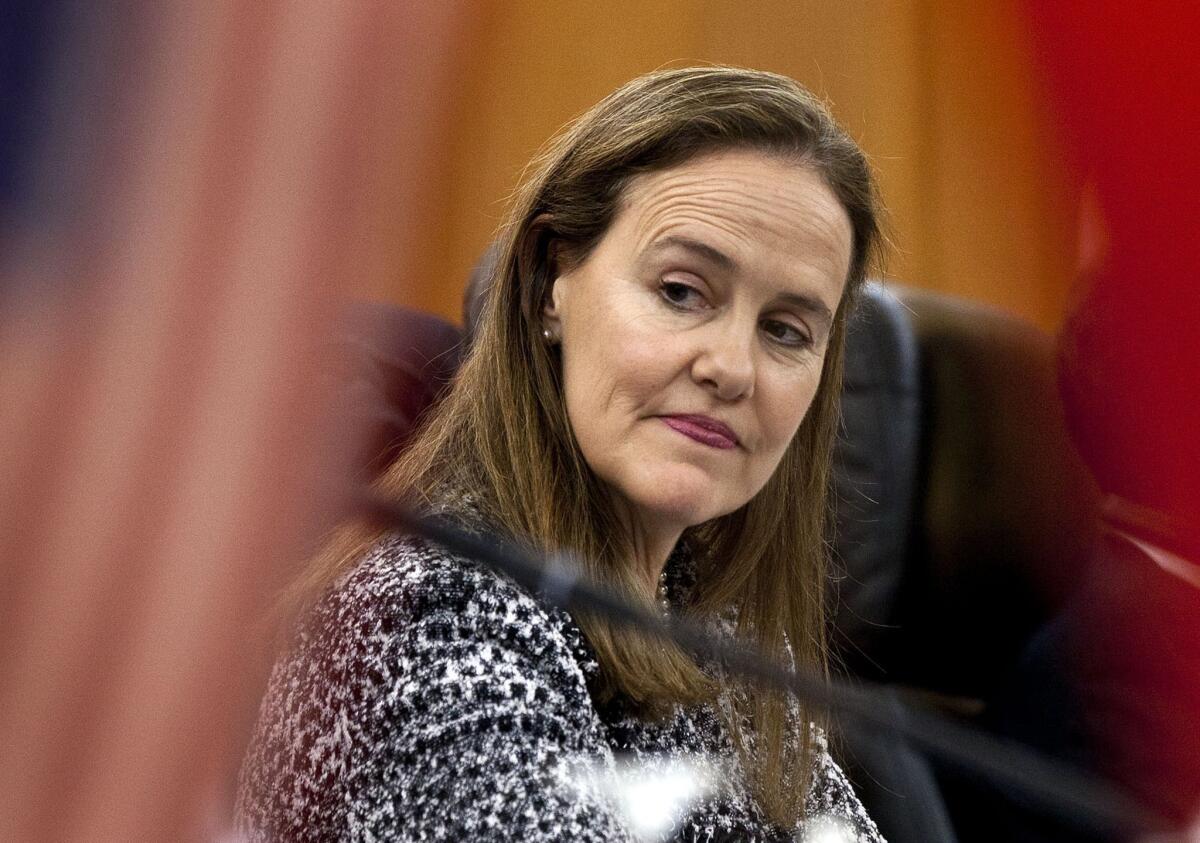
She co-founded the Center for a New American Security, a Washington think tank which analyzes national security issues, and has been active in the private sector and academic world in recent years. Flournoy had been expected to be Hillary Clinton’s Defense secretary if Clinton had won the 2016 race.
Central Intelligence Agency
People close to Biden tout Avril Haines as a likely contender.
Haines, 51, has served as top deputy to both CIA and National Security Agency commanders. She has kept political views close to the vest. She supported the Trump nomination of Gina Haspel as CIA director despite Haspel’s reported link to the use of torture on Iraqi detainees. This year, she started advising the Biden campaign.
U.S. Ambassador to the United Nations
A deft hand will be helpful at the U.N., where Trump has burned many bridges, withdrawn from or belittled numerous multilateral organizations and insulted world leaders.
Some of the leading contenders include veteran diplomats: Nicholas Burns, 64, a former ambassador to NATO and senior State Department official in Democratic and Republican administrations; Wendy Sherman, 71, a former top State official who helped negotiate the landmark Iran nuclear deal, and Christopher Hill, 68, a retired diplomat who served in numerous prominent ambassadorships.
Several Biden-watchers predict Jake Sullivan, 43, and Juan Gonzalez, two fixtures of the Obama administration who specialize in foreign policy and are advising Biden’s campaign, could be headed for senior positions.
Another possibility is that Samantha Power, Obama’s ambassador to the U.N., might return. She was known for her close relationship with Obama and also wrote fondly about Biden in her 2019 autobiography. However, she clashed sharply with the former vice president over retaliation against Syrian President Bashar Assad for atrocities he committed against his citizens. Generally, she is far more willing to intervene forcefully to save lives overseas than is Biden.
A couple of long shots include Sen. Chris Coons of Biden’s home state, Delaware, and Sen. Chris Murphy of Connecticut. Both are members of the Senate Foreign Relations committee and have been forcefully critical of Trump’s handling of the world’s problems.
‘America first’ vs. America in the world. On most foreign policy issues, Trump and Biden vary widely
In foreign policy, Joe Biden would dismantle President Trump’s actions, while the incumbent would stay his unpredictable course.
More to Read
Get the L.A. Times Politics newsletter
Deeply reported insights into legislation, politics and policy from Sacramento, Washington and beyond. In your inbox three times per week.
You may occasionally receive promotional content from the Los Angeles Times.
